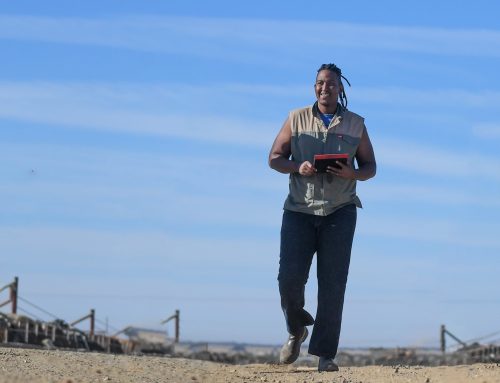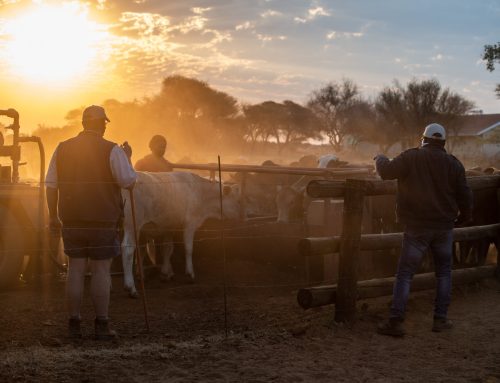The recent news that Clover would be moving the country’s biggest cheese factory from Lichtenburg in the North West to Queensburgh in Durban, KwaZulu-Natal, due to a lack of service delivery in the town by the municipality, has serious consequences for all stakeholders and could spell more disaster if other businesses based in small towns follow Clover’s example.
Farming and agribusinesses play a crucial role in sustaining the economies of South Africa’s smaller towns. Not only do they provide employment, but in many cases, they are also directly responsible for uplifting the socio-economic profile of an area, due to the investment by the businesses in their immediate communities.
This is the view of Roelie van Reenen, supply chain executive at Beefmaster Group, who says that everyone should hear alarm bells when a business announces that relocation is on the cards to a lack of municipal support.
“This has a ripple effect on all stakeholders: Farmers, smaller businesses and players in the supply chain, community beneficiaries, and of course, employees who stand to lose their income source and ability to feed their families,” says van Reenen.
According to government news, Clover provided over 400 permanent and temporary jobs.
“It is likely that the business may have offered to relocate many of these employees so as to prevent a total loss of income, which would have a devastating impact on households, given that many employees are likely to be the sole income-earners in the family.”
Van Reenen says a conservative estimate is that the impact is likely to be felt by more than 1840 people, representing 7% of Lichtenburg’s residents.
Furthermore, the closure of the plant will impact local farmers, as it processed about 350 000ℓ of milk every day. About 250 000ℓ of this milk was sourced from KwaZulu-Natal and about 100 000ℓ from North West farmers.
Given the impact of its decision, did Clover do the right thing by pulling out of Lichtenburg?
“Clover was very much trapped between a rock and a hard place,” says van Reenen.
He adds that there is growing concern that governance and service delivery failures are rife and are having a major impact on farming and agribusinesses in small towns.
“You cannot operate a business in a town successfully if poor service delivery continues. While the saddest part is that so many people will be losing their jobs, the move also spells doom for the municipality and the invest-ability of the town, given that Clover will no longer be a ratepayer to the municipality.”
According to National Treasury, 163 municipalities in South Africa were in financial distress, 40 were battling to deliver basic services, and a growing number are also failing to collect revenue from residents and businesses for electricity, water and property taxes.
Recently it was also announced that Astral, the biggest employer in Standerton, had to slaughter 950 000 birds and fork our R3 million in lost production due to the town’s water crisis and electricity supply interruptions. The power cuts, alone, have cost the company R39 million over the past five years.
Van Reenen says that this is a grave warning that there may be more businesses who follow Clover’s example and move their production plants to other areas.
“Unfortunately, this creates a vicious circle. Less income for a municipality due to its biggest revenue sources no longer being there will ultimately result in even fewer services being delivered. In plain language the municipality has no money in its coffers to deliver services due to a business relocating. The problem is multi-layered, especially in light of ongoing political point scoring, and requires urgent intervention from all role-players, as ultimately, it is the people in a town that will suffer the most.”
He says that it is in everyone’s best interests that municipalities and businesses find ways to work together to solve common problems.
“If all role-players work together, then we will experience the growth of agricultural businesses and communities, and develop these into thriving areas. We need to put a stop to poor service delivery and we need to respond constructively as a business collective to these multi-layered problems. We need to ensure that the farming and agricultural industries remain profitable, a stable source of revenue, and continue to provide job security to those who need it most,” concludes van Reenen.
Since being invested in Kimberley since 2003, Beefmaster Group has created 600 jobs and continues to make an impact in the area. It recently announced that it would scale up its production plant in Kimberley by investing more than R30 million into equipment upgrades and creating an estimated 30 new jobs. Furthermore, it will also spend approximately R1.2 million in improving the socio-economic conditions of impoverished areas in and around the Kimberley area, given the dire need, representing an increase of 70% compared to 2020. This is significant given the disinvestment from companies in areas where communities are reliant on them for job security, income and upliftment of socio-economic conditions.






